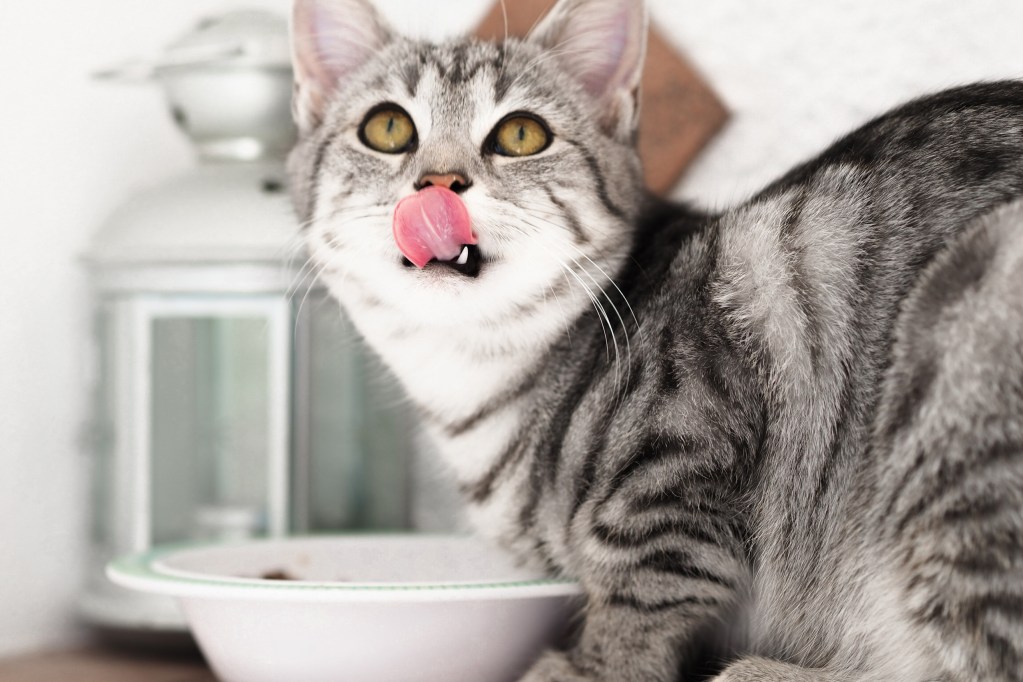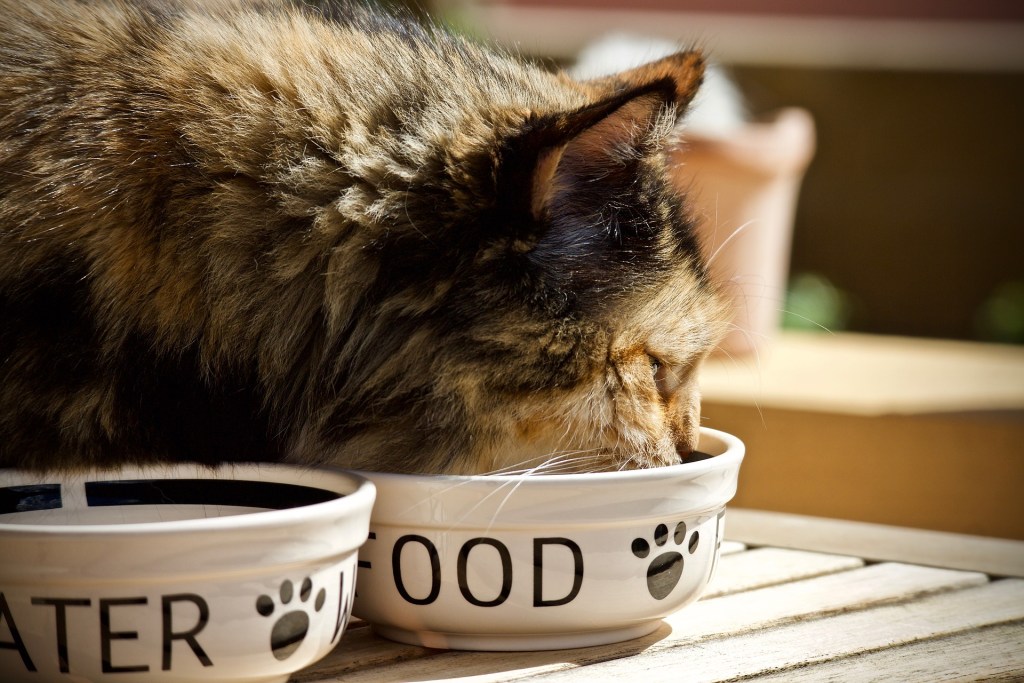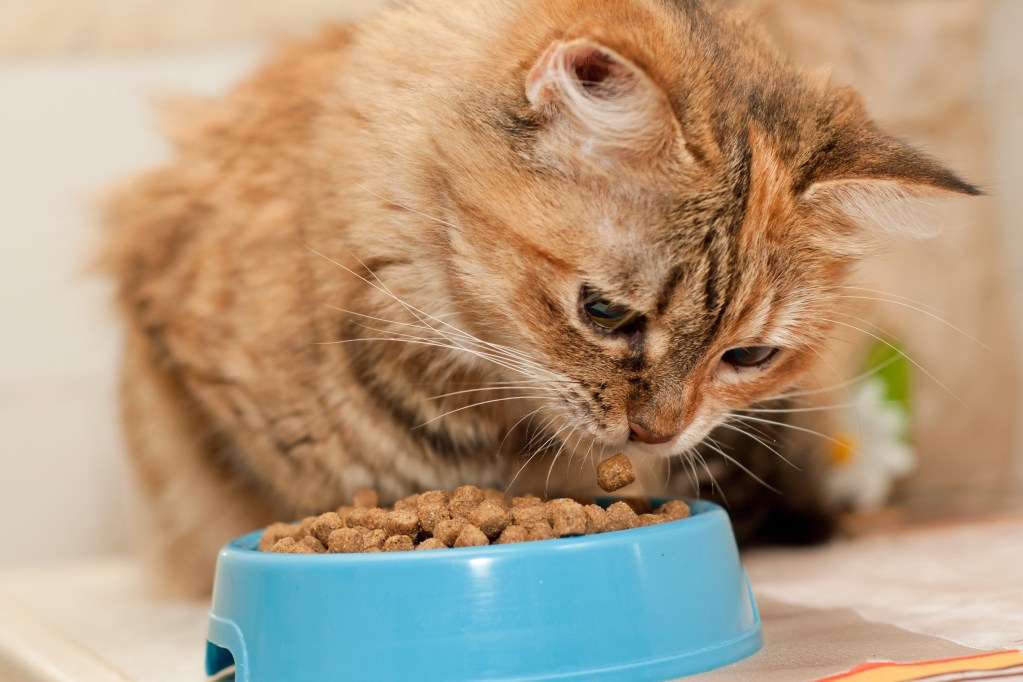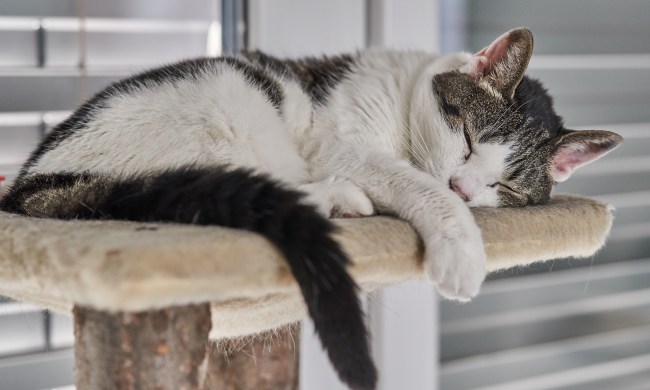
You’ve probably heard all about raw diets for pets. After all, more pet owners than ever want to give their animals a healthier diet! Given that wild cats eat raw meat all the time, it seems to make sense that your domestic cat would also benefit from these kinds of meals. But feeding uncooked meats, including raw chicken, is complicated, and it carries some risks.
There are definitely benefits of feeding raw chicken to cats, but it’s also important to understand the concerns and to talk to your vet about your cat food plans so you can make the dietary choice that’s right for your animal. Can cats eat raw chicken? Yes. But whether it’s a good idea to feed cats raw chicken is a better question to consider.

Why feeding raw is appealing to cat owners
Raw chicken for cats does offer some benefits. It doesn’t have the fillers or additives that you find in many commercially available foods, and chicken is a nutritious source of protein.
Many cat owners believe that because cats are carnivores, it’s important to feed them foods that are as close to what they would have eaten in the wild as possible in the kitchen. Raw proteins, like chicken, seem to be a natural answer. But there are some risks that come with feeding cats raw foods, especially chicken, which may make them not worth trying.

Why raw chicken can be a problem
Even though wild cats generally have no problem eating raw meat, feeding raw chicken to cats can cause issues, particularly if the chicken isn’t fresh. Chicken can carry salmonella, which will make cats (and humans) very sick. Chicken can also harbor bacteria and potentially upset your cat’s digestive system even if it hasn’t technically ‘gone bad.’
While unusual, it’s also possible for your cat to ingest small pieces of chicken bones as he eats. These can be problematic if they get stuck in his digestive tract or throat, and it’s just one reason to inspect the meat you feed to your pet, whether it’s raw or cooked.
While wild cats regularly eat raw meats, your domesticated cat is used to processed, cooked foods. Introducing raw foods can upset his stomach. Additionally, if you’re thinking of feeding your cat a diet that consists of only raw chicken, it can become difficult to balance your cat’s nutrition. You’ll probably need to add vitamins and minerals to the meat, which can be a challenge.
If you want to feed a raw-only diet, then commercially available raw food for cats may be a better choice. These products are formulated to ensure that your cat’s nutritional needs are met, so you don’t have to worry about adding vitamins and minerals.

Veterinarians’ take on raw diets for felines
As a quick Internet search will tell you, a raw diet is definitely not safe for every pet. Cats who are ill, on medication, or experiencing immune system suppression should not try a raw diet, as they can be more susceptible to food-borne illness. Generally speaking, though, some veterinarians are not concerned about cats becoming sick from raw meat in the same way humans do.
Veterinarian Andrea Tasi explains that “cats’ anatomy and physiology were designed to eat and digest raw meat. Cats have a more acid stomach pH and a shorter gastrointestinal tract, making them less vulnerable to many types of food-borne bacteria.” While she has seen cats dealing with illnesses become healthier within weeks of starting a raw food diet (with supplemental meal-topping powders to ensure they’re getting all their nutrients), other veterinarians don’t believe that the potential benefits are worth the risk.
A pair of veterinarians with VCA Animal Hospitals shared a clinical finding that discovered that about a quarter of commercially available raw food for pets was contaminated with bacteria. They explained that owners must be careful interacting with cats on raw diets, as even petting them hours after they’ve licked themselves can spread the bacteria from feline to human.

A safer way to feed raw foods to your cat
If you want to feed your cat raw chicken, then it’s important to take precautions to make it as safe as possible. If you don’t buy commercial raw pet food, look in the organic section and buy the freshest chicken you see. Feed this to your cat promptly — the longer the chicken ages, the more bacteria it grows.
Try to avoid any excess handling of the meat, which can also contribute to bacteria, and use proper food preparation techniques. Cut the chicken on a clean, sanitary surface with a clean knife, and be sure to remove any bones before giving it to your cat.
Once you feed him the chicken, you’ll need to promptly remove any leftovers. Throw out the leavings once they reach room temperature, and feed only as much as your cat can eat in one sitting. It’s also important to thoroughly wash your cat’s bowl with hot water and soap after he’s eaten — dishwasher-safe containers work best.
While giving your cat chicken from the store might be convenient, buying a commercially prepared product that contains raw chicken for pets has advantages. These products are prepared using processes like flash freezing that help kill off bacteria. There’s also minimal prep for you to do at home, which further reduces the chance of the food containing bacteria when you give it to your cat.
Feeding your cat raw meats can be a bit of a challenge, especially if your pet is experiencing health issues or needs to lose weight. Before you make any changes to your feline’s diet, it’s always important to consult with your vet. Your kitty’s doctor can advise you about the foods that may be most helpful for your cat, and the vet can also identify if there are any health risks to the changes that you’re planning to make. As with any menu swap, always introduce new food gradually while also slowly decreasing the amount of old food you’re giving your cat. This slow transition can help avoid digestive upset and make the adjustment easier for him.


